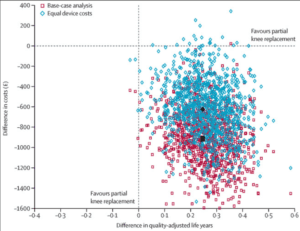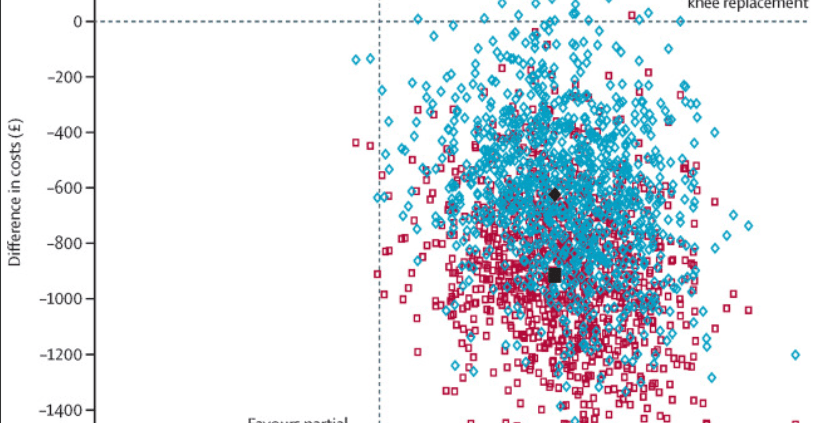The Lancet has published the 5-year outcomes of a randomised controlled trial: The Total or Partial Knee Arthroscopy Trial (TOPKAT). The purpose of the trial, of which Professor Chapman-Sheath was part of the study group, was to assess the clinical effectiveness and cost-effectiveness of total knee replacements (TKR) versus partial knee replacements (PKR) in patients with medial compartment osteoarthritis of the knee.
Knee replacement for late-stage medial compartment osteoarthritis of the knee is an effective and common procedure and there are two main surgical options; TKRs and PKRs. There is a variation in the provision of these, often because of disagreement between surgeons. The TOPKAT trial was initiated to assess and provide robust evidence for the effectiveness (both clinically and financially) of both. It also investigated complications (including revision operations), patient satisfaction and the cost implications for patients, employers and healthcare providers.
In conclusion, the study found that there was little difference in the clinical outcome between medial PKR and TKR surgery at 5 years. However, the PKR had health economical benefits. The study suggests that surgeons are making the correct clinical decisions regarding their selection of patients for either surgery and are delivering excellent results.
Visit https://www.thelancet.com for further details of the methodology and results.

TKR/PKR effectiveness trial
